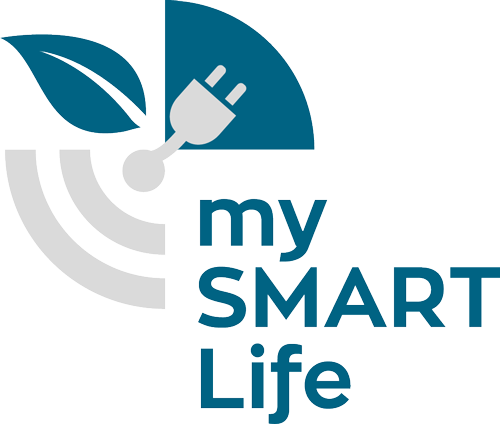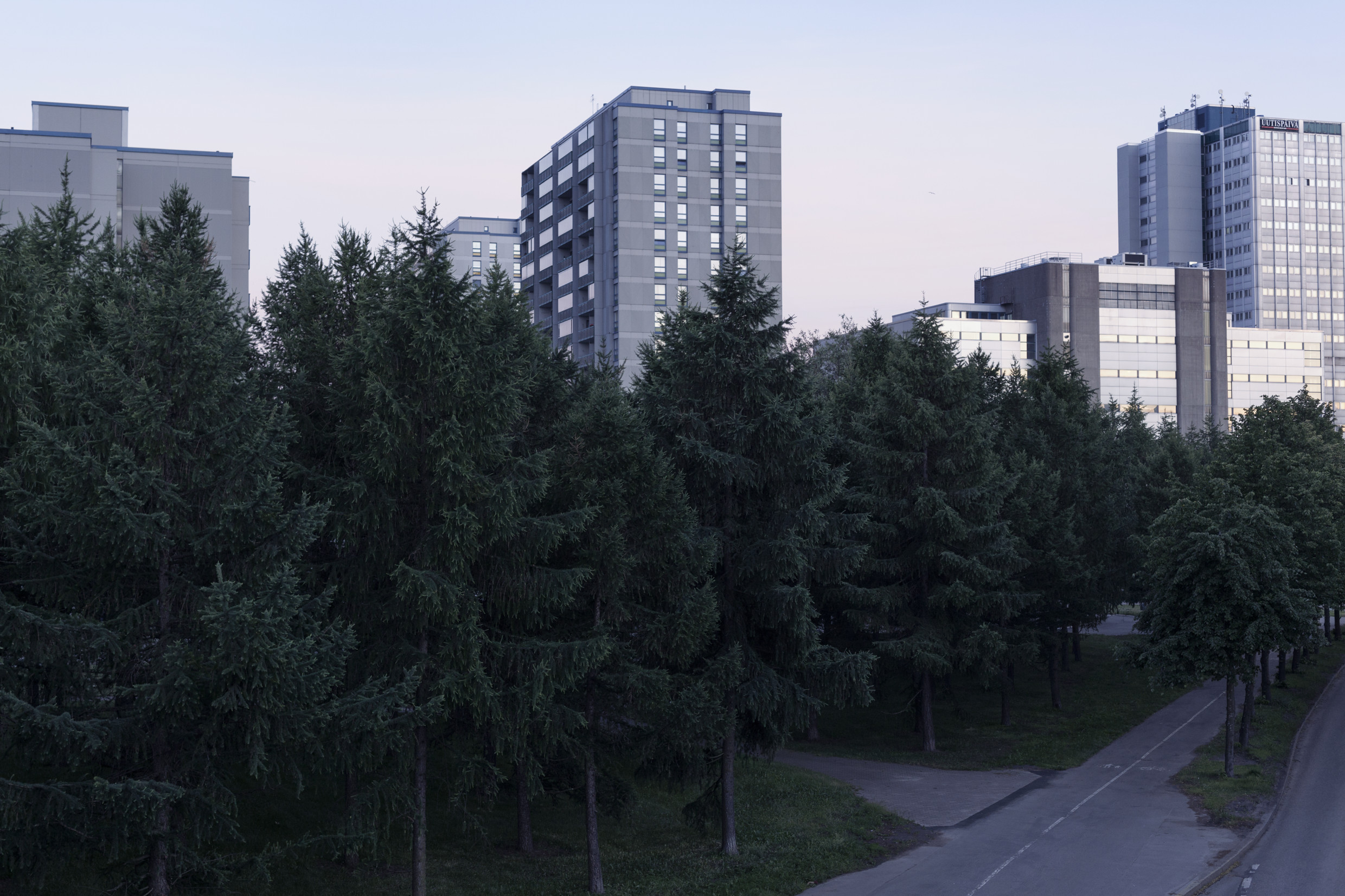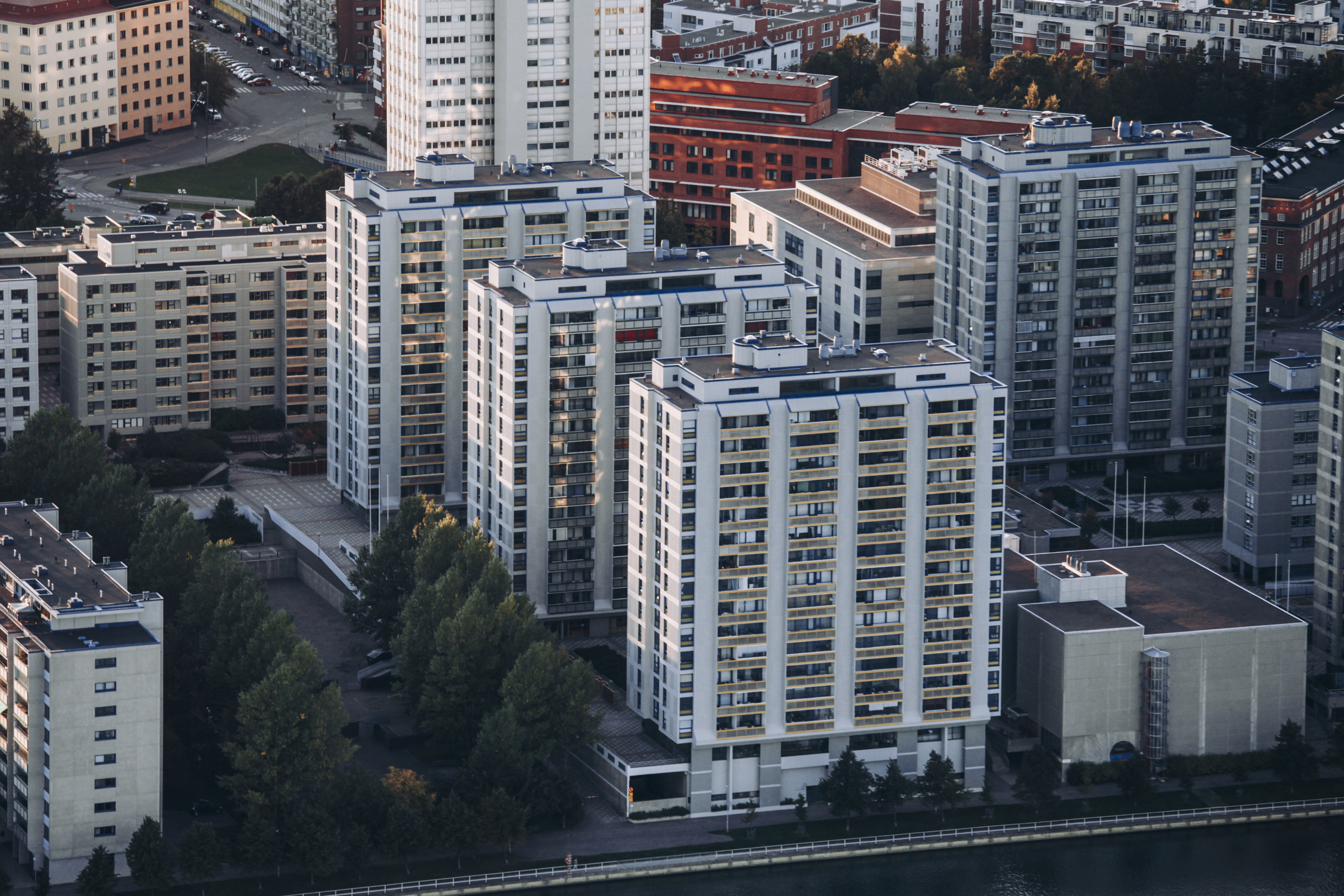During 2017-2019, several energy actions were implemented in Merihaka, a coastal residential area in central Helsinki, under the mySMARTLife project with the aim of improving energy efficiency and reducing greenhouse gas emissions. The actions were implemented in co-operation with condominium areas and lessons learnt have been used for the City of Helsinki’s energy renaissance strategy.
Carbon neutral Helsinki 2035
According to recent estimates, the energy consumption of Helsinki's current building stock must decrease by about 30 % for the city to achieve its target of becoming carbon neutral by 2035. At the same time, a considerable amount of electricity and heating must be produced sustainably with regional solutions. This requires open interaction and cooperation with regional stakeholders. The action group in Merihaka focuses on improving the energy efficiency of privately owned condominiums that represents nearly half of the residential building emissions in the Helsinki area.
In Merihaka, the installation of smart controls for managing apartment level heat demand is the key retrofitting intervention. As the primary target area, Merihaka consists of 12 residential condominium buildings with 1,323 flats which correspond to 115,955 sqm in total, including 71,450 living sqm. The buildings in the area are connected to the district heating. In the condominiums, many renovations have already been done and U-values (a measure of insulation performance of building elements) are relatively good compared to European averages.
The buildings of the area were constructed in the 1970s. The condominiums from the era spanning from 1960s to 1980s represent a vast building stock in Helsinki, having relatively high energy consumption. Out of the 10,262 residential high-rise buildings in Helsinki (22.28M sqm) 4,427 date from the 1960-1980s (9M sqm). Thus, there will be potential to scale up the project actions.
Multi-objective building performance optimisation, smart thermostats and thermal imaging
In Merihaka, a total of 167 apartments in a condominium were equipped with Salusfin Oy system that includes smart thermostats connected to the district heating through IoT and cloud-based intelligence to provide load balancing for the network. This system was responsible for managing room level temperatures. The inhabitants’ user interface for the service is a mobile application. The app was localised for the task to include thermostat control in addition to the smart home logic offering. End user support was organised in three tiers: The service company takes care of the inhabitant and provides the first point of contact, installation and maintenance of the equipment (tier 1), while Salusfin has the responsibility for software support (tier 2 & 3).
Smart thermostats measure and adjust the temperature quicker and with better precision than conventional thermostats. They contain machine learning capabilities and ventilation/ open window features. Energy savings can range from 10% to 25% depending on user activity and motivation. In the pilot building, the savings converted to CO2 emissions can be up to 80 tons of CO2 per year.
In four voluntary apartments, Helen Oy also tested heat demand response. The heat demand response increases or decreases the smart thermostat setpoint. This means that the amount of heat per time used by the home can be shifted to low peak hours. In parallel with the technical test, the thermal comfort of the occupants was analysed through feedback questionnaires. No correlation between the heat demand response activities and the thermal comfort was detected.
In addition to the smart thermostat intervention, knowledge about energy renovation options was offered to the apartment house companies by the City of Helsinki. A multi-objective building performance optimisation (MOBO) was done to find out the most impactful and cost-efficient renovation options for two apartment house companies and for the whole area. The optimisation results were delivered via workshops. These activities provided insight for developing a new energy advisory service within the city.
Lessons learnt from Merihaka
Customer feedback was collected 2-5 weeks after the installation phase. Frequent feedback sessions with maintenance and onsite support were arranged for residents during the month after the system was installed. The onsite support was helpful for the apartment owners and many elderly residents got assisted to take the thermostats into use. There is a noticeable decreasing trend in the heating energy consumption since the smart control system was commissioned in the whole apartment building. The lesson learnt from the heat demand response is that the method is more profitable to be implemented on a larger scale than at the level of individual apartments. This is an important finding for Helen Oy in the further development and use of load balancing methods.
Finally, long-term support from the city is needed for the apartment house companies to engage in energy renovation projects. Support can entail for example the provision of knowledge about suitable renovations (for example multi-objective building performance optimisations) and help with city planning considerations and permissions.
The City of Helsinki offers free support for energy renovations
Based on the lessons learnt of the project actions, it is assumed that the city can influence the emission of the condominiums through political guidance and by providing concrete assistance in energy renovations for condominiums.
These lessons learnt from Merihaka have been used in the City of Helsinki’s Energy renaissance strategy, which aims to improve the energy efficiency of the private building stock in the Helsinki area. The City of Helsinki offers hands-on engineering help and support for condominiums that are interested in finding out how to carry out effective and financially viable energy renovations. The support is free of charge and intended for all condominiums in Helsinki. Read more about service and energy renovations on the City of Helsinki's website.



